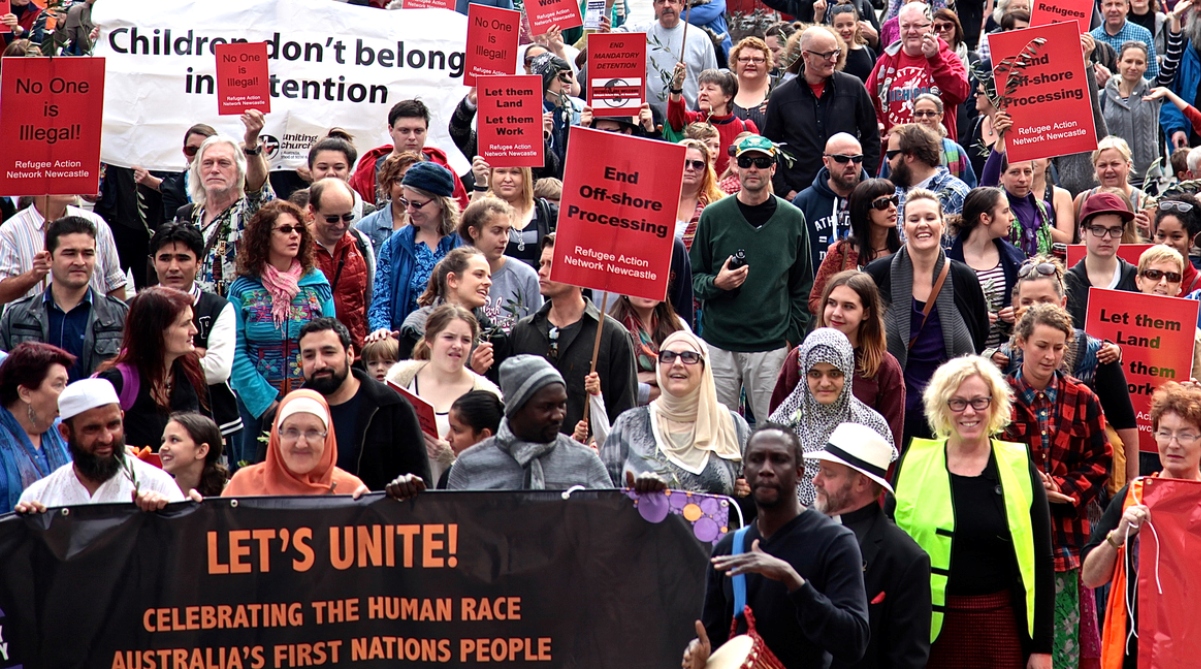Elon Musk hits out at Australia over ruling to hide stabbing videos
Tech billionaire Elon Musk has hit out at Australia over the country's attempts to ban footage of a Sydney church stabbing on his social media platform X.
Australia is drawing up plans to require migrants to temporarily settle in regional and rural areas to ease congestion in major cities, the government announced Tuesday.

People gathered for the ‘‘joyful’’ walk from Newcastle Museum to Civic Park saying not to hate and that they want to celebrate diversity in Newcastle, New South Wales, Australia on 13 June 2015. (Photo: iStock)
Australia is drawing up plans to require migrants to temporarily settle in regional and rural areas to ease congestion in major cities, the government announced Tuesday.
While much of the vast continent is sparsely populated, Australia is growing at an annual rate of 1.6 percent – one of the highest among OECD countries.
Sydney, Melbourne and southeast Queensland are among the fastest-growing urban areas in the world thanks in part to overseas migration, said population minister Alan Tudge.
Advertisement
The resulting strain on infrastructure in Australia’s eastern cities cost the economy Aus$15 billion (US$10.6 billion) last year, with annual forecast losses of Aus$40 billion by 2030 if left unchecked, Tudge told an audience at the Menzies Research Centre think-tank in Melbourne.
“This (congestion) is a serious challenge for families and a serious economic challenge for the nation,” he said.
“We are working on measures to have more new arrivals go to the smaller states and regions and require them to be there for at least a few years.” Other parts of the country “have barely grown and (are) crying out for more people”, he added.
Tudge did not outline how new immigrants would be forced to remain in regional areas, saying this was still to be determined by the government.
He flagged a number of other schemes to ease population pressure, including a bigger infrastructure spend and moving public servants out of the big cities.
Critics such as former Australian Border Force chief Roman Quaedvlieg said requiring migrants to live in regional areas could be difficult to enforce.
“Migrants will gravitate to opportunities & amenities in cities,” he tweeted Tuesday.
“It’s not possible to police the condition without substantial resources, both identifying breaches and sanctioning them.”
Australia has since seen had an influx of migrants from across the world since the arrival of European settlers in the 18th century, with nearly half of Australians either born overseas or at least one parent born abroad.
Advertisement